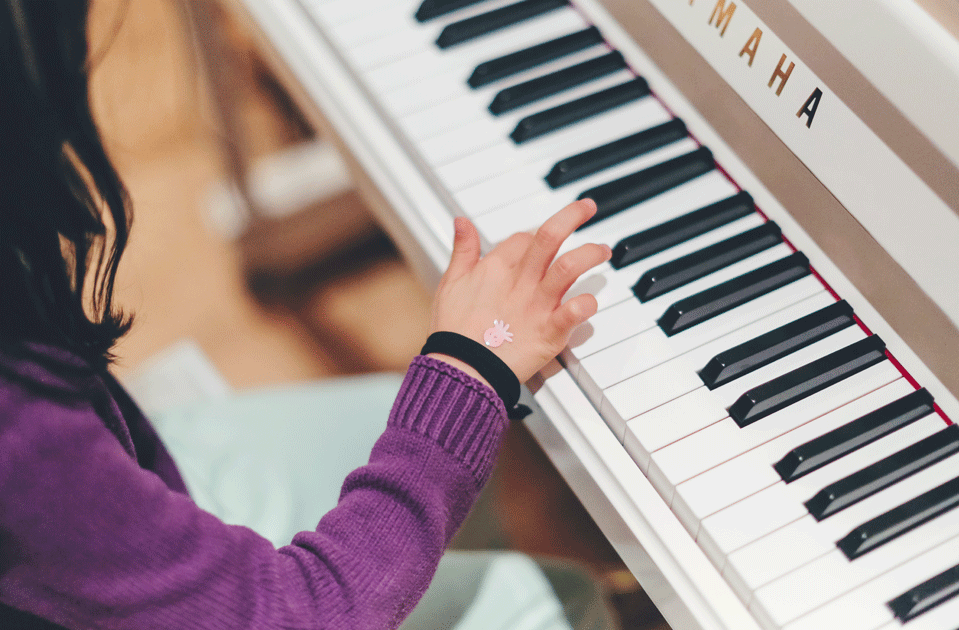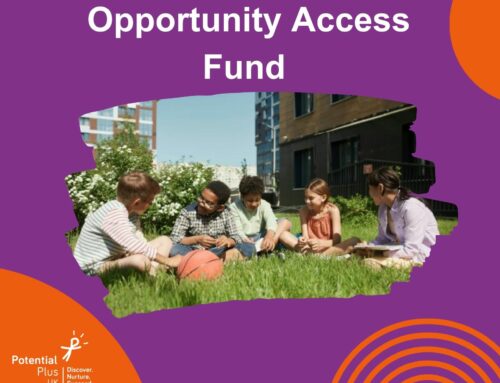From the Archive
This article, written by Professor Susan Hallam, was originally issued in the Summer 2010 print edition of NAGC Magazine. Resources have been updated in 2024.
Recent advances in the study of the brain have enhanced our understanding of the way that active engagement with music may influence other activities. The cerebral cortex self-organises as we engage with different musical activities, skills in these areas may then transfer to other activities if the processes involved are similar. Some skills transfer automatically without our conscious awareness, others require reflection on how they might be utilised in a new situation.
Perceptual, language and literacy skills
Speech and music have a number of shared processing systems. Musical experiences which enhance processing can therefore impact on the perception of language which in turn impacts on learning to read. Active engagement with music sharpens the brain’s early encoding of linguistic sound. Eight-year-old children with just 8 weeks of musical training showed improvement in perceptual cognition compared with controls.
Speech makes extensive use of structural auditory patterns based on timbre differences between phonemes. Musical training develops skills which enhance perception of these patterns. This is critical in developing phonological awareness which in turn contributes to learning to read successfully.
Speech processing requires similar processing to melodic contour. Eight-year-old children with musical training outperformed controls on tests of music and language.
- Learning to discriminate differences between tonal and rhythmic patterns and to associate these with visual symbols seems to transfer to improved phonemic awareness.
- Learning to play an instrument enhances the ability to remember words through enlargement of the left cranial temporal regions. Musically trained participants remembered 17% more verbal information that those without musical training.
- Children experiencing difficulties with reading comprehension have benefitted from training in rhythmical performance.
Research exploring the relationships between mathematics and active musical engagement has had mixed results, in part, because not all mathematics’ tasks share underlying processes with those involved in music. Transfer is dependent on the extent of the match, for instance, children receiving instruction on rhythm instruments scored higher on part-whole maths problems than those receiving piano and singing instruction.
Intellectual development
One of the first studies to consider the role of music in children’s intellectual development was undertaken by Hurwitz et al. (1975). First-grade children were assigned to one of two groups. An experimental group received Kodaly music lessons for five days each week for seven months, a control group did not. At the end of the study, the experimental group scored significantly higher than the control group on three of five sequencing tasks and four of five spatial tasks. No statistically significant differences were found for verbal measures, although the children in the experimental group had higher reading achievement scores than those in the control group which were maintained after two academic years.
During the 1990s there was a resurgence of interest in these issues which had as a particular focus the impact of active engagement with music on spatial reasoning, an element of intelligence tests. In a typical study, Rauscher et al. (1997) assigned children from three pre-school groups to music, computer or no-instruction groups. The instruction groups received tuition in keyboard and group singing, group singing alone or computer lessons. Singing was for 30 minutes daily. The children in the keyboard group scored significantly higher in the spatial recognition test. Since then, several studies have confirmed that active engagement with music has an impact on visual-spatial intelligence. A review of 15 studies found a ‘strong and reliable’ relationship and concluded that music instruction leads to dramatic improvements in performance on spatial-temporal measures. The consistency of these findings suggests a near transfer, automated effect perhaps related to the skills acquired in learning to read music.
Other research has focused on more general manifestations of intelligence. In 2000, Bilhartz studied the relationship between participation in a structured music curriculum and cognitive development in 4-6-year-olds. Half of the children participated in a 30 week 75 minute weekly parent-involved music curriculum. Following this, children were tested with 6 sub-tests of the Stanford-Binet intelligence test and the Young Child Music Skills Assessment test. There were significant gains for the music group on the music test and the Stanford-Binet Bead Memory subtest. Adopting a cross sectional approach, in 2005 Schlaug compared 9-11-year-old instrumentalists with an average of 4 years training with controls. They showed that the instrumental group performed significantly better than the control group on musical audiation, left hand index finger tapping rate, and the vocabulary subtest of the WISC-III. Strong non-significant trends were seen in the phonemic awareness test, Raven’s Progressive Matrices, and the Key Math test. A year earlier, Schellenberg randomly assigned a large sample of children to four different groups, two of which received music lessons (standard keyboard, Kodaly voice) for a year, the control groups receiving instruction in a non-musical artistic activity (drama) or no lessons. All four groups exhibited increases in IQ as would be expected over the time period, but the music groups had reliably larger increases in full scale IQ. Children in the control groups had average increases of 4.3 points while the music groups had increases of 7 points. On all but 2 of the 12 subtests the music group had larger increases than control groups. Some theorists argue that the gains seen in more general IQ are likely to be the result of specific gains in visual-spatial intelligence but there may also be effects related to enhanced development of language and literacy skills.
A key issue arising from this research is what kinds of musical activity bring about change in particular kinds of intellectual development and why. The research reported above has been based on children’s participation in a variety of musical activities, some offering a broad musical education, others focused more closely on instrumental tuition. To begin to address these questions, in 2007 Rauscher explored the impact of different types of musical activity in at risk preschool children. Five groups received piano, singing, rhythm, computer or no instruction for two years. The three music groups scored higher following instruction than the control groups on mental imagery tasks but the scores of the rhythm group were significantly higher than all other groups on tasks requiring temporal cognition and mathematical ability. The findings from this study suggest that it is rhythmic training which is important for the development of temporal cognition and mathematics, while developing enhanced perceptual skills in relation to pitch and melody supports language development, although rhythm emerges as important in relation to literacy.
Overall, taking these findings together it would appear that active engagement with making music can have an impact on intellectual development. What requires further research is the specific types of musical participation which develop skills which transfer automatically to other areas and what are the common features of these skills.
The Case for the Gifted – NAGC Comment
Gifted children not only benefit in the ways above by learning a musical instrument, but also appreciate the demands and challenges that arise from pursuing a musical interest. It can provide intellectual, physical and emotional stimulation, and help in areas of concentration, focus and perseverance, and potentially offer social opportunities with like-minded children should your child join a band, ensemble or orchestra. Musical ability can also help with stress and supporting emotions as it offers an opportunity to take ‘time out’ and forget about particular worries and anxieties such as impending exams or interviews.
Considering the benefits to children academically, and also intellectually, emotionally and socially, learning a musical instrument therefore could be considered a valid option for schools who wish to offer some form of enrichment or provision for their more able students. Whilst not directly linked to a specifically identified gift i.e. for a mathematically able pupil, the arguments for it increasing their intellect, and supporting that social and emotional side should not be overlooked by teachers or dismissed by parents. Indeed, based on the evidence, encouraging your child to learn an instrument is certainly worthy of further investigation.
Further Guidance:
Susan Hallam and Evengalos Himonides. The Power of Music: An Exploration of the Evidence. (2022). ISBN 9781800644168. Free pdf download: https://www.openbookpublishers.com/books/10.11647/obp.0292
Music for All https://www.musicforall.org.uk/apply-for-funding/application-process/ A charity providing funding to get people involved in music.
Help Musicians UK (Musicians Benevolent Fund), this page offers advice and signposts people to help for funding or borrowing instruments. https://www.helpmusicians.org.uk/get-support/develop-as-a-musician/advice/musical-instrument-funding-2
Peter Nickol. Learning to Read Music A good book to help support students learning to read music – an essential skill for most instruments. Ideal companion, and worth getting for anyone beginning to learn a musical instrument.
The following reference was contained in the original publication in 2010, however the website is no longer fully up-to-date:
- To help convince your child about the benefits of learning an instrument, why not let them read this useful website: http://kayesmusic.tripod.com/id2.html
About the Author (2010):
Dr Susan Hallam is a Professor of Education, and Dean of Faculty at the Institute of Education. An accomplished researcher and author on various topics in education, her interests are in disaffection from school, learning and studying, ability grouping, music psychology and music education.






